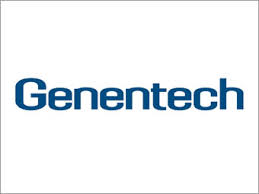Genentech’s Perjeta Regimen Helped People with HER2-Positive Early Breast Cancer Live Longer without Their Disease Returning or Getting Worse

Genentech, a member of the Roche Group has announced new results from the Phase II NeoSphere study. The results suggested that Perjeta® (pertuzumab) in combination with Herceptin (trastuzumab) and docetaxel chemotherapy given prior to surgery reduced the risk of disease getting worse and increased the time people lived without their cancer returning compared to Herceptin and chemotherapy in people with HER2-positive early breast cancer (eBC).
The safety profile of the Perjeta regimen was consistent with that seen in previous studies, and no new safety signals were identified. These data will be presented today at the 51st Annual Meeting of the American Society of Clinical Oncology (ASCO) in Chicago by Dr Luca Gianni, Medical Oncology, San Raffaele Hospital, Scientific Institute (Abstract #505).
In the NeoSphere study, both progression-free survival (PFS) and disease-free survival (DFS) were evaluated at three years. The results suggested that people who received the Perjeta regimen prior to surgery were 31% less likely to experience disease worsening, recurrence or death (PFS HR=0.69; 95% CI, 0.34–1.40) compared to those who received Herceptin and chemotherapy. People treated with the Perjeta regimen were also 40% less likely to experience disease recurrence or death (DFS HR=0.60; 95% CI, 0.28–1.27). People in the NeoSphere study who were treated in the neoadjuvant setting also received a year of adjuvant treatment with Herceptin plus chemotherapy after their surgery. The results of this analysis are descriptive, as the study was not designed to show statistical significance for 3-year PFS and DFS.
"Treating breast cancer early, before it has spread, may help prevent the disease from returning or reaching an advanced stage," said Sandra Horning, chief medical officer and head of Global Product Development. "These new results add to the body of data for Perjeta in the neoadjuvant setting, and we look forward to the Phase III APHINITY study results to better understand the broader impact of Perjeta in the adjuvant treatment of HER2-positive early breast cancer."
The results also suggested that people who achieved pathological complete response (pCR; no tumour tissue detectable at the time of surgery in the affected breast and local lymph nodes) were more likely across all arms of the study to be alive and disease-free at three years (PFS HR=0.54; 95% CI, 0.29–1.00; DFS HR=0.68; 95% CI, 0.36–1.26). It was previously reported that the Perjeta regimen significantly increased the number of people who achieved pCR compared to Herceptin and docetaxel chemotherapy (39.3 vs. 21.5%).
In 2013, the FDA granted accelerated approval of the Perjeta regimen for neoadjuvant treatment in people with high-risk, HER2-positive eBC. A full review of data from the ongoing Phase III APHINITY study will be required for the accelerated approval to be converted to a full approval. APHINITY compares Perjeta, Herceptin and chemotherapy with Herceptin and chemotherapy for adjuvant (post-surgery) treatment in people with HER2-positive eBC. Data from APHINITY are expected in 2016.
Roche recently submitted a Marketing Authorization Application to the European Medicines Agency (EMA) for the Perjeta regimen as a neoadjuvant treatment for people with HER2-positive eBC.
Related News
-
News BioNTech to begin mRNA vaccine manufacturing in Rwanda by 2025
German biotechnology company BioNTech has stated their intentions to begin production at their mRNA vaccine factory in Rwanda by 2025, which will mark the first foreign mRNA vaccine manufacturing site on the continent of Africa. -
News Identifying Alzheimer’s Disease biomarker proteins with whole blood tests
A University of Manchester spin-out pharmaceutical company, PharmaKure, has reported successful study results for the quantification of Alzheimer’s Disease biomarker proteins with a whole blood test. -
News Bill & Melinda Gates Foundation to boost mRNA vaccine initiatives in Africa with USD $40m
To address vaccine inequality and accessibility issues, the Bill & Melinda Gates Foundation aims to deliver USD $40m to various biotech companies and vaccine manufacturers in support of mRNA vaccine development. -
News CPHI Podcast Series: Exploring neurological frontiers in Alzheimer's and beyond
The next episode of the CPHI Podcast Series delves into the science and background behind some recent developments in the field of Alzheimer's disease and neurological disorders. -
News Is patient centricity the future of pharmaceutical manufacturing?
In this interview with Sandra Sánchez y Oldenhage, President of PharmAdvice, she speaks to the importance of considering patients in the manufacturing stages of the pharmaceutical supply chain, and how it can redefine healthcare. -
News CPHI Podcast Series: How to leverage AI for Drug Discovery
Artificial intelligence is the topic of debate in the latest episode from the CPHI Podcast Series, where Digital Editor Lucy Chard speaks with Bill Whitford of DPS Group about the integration of AI in healthcare. -
News Pfizer forges ahead with blood cancer therapy after approval from FDA
Pfizer gains accelerated approval from the US FDA for their new bispecific antibody therapy for multiple myeloma, set to address an unmet need for patients. -
News Alzheimer's drug donanemab deemed effective in landmark clinical trial
Results from the TRAILBLAZER-ALZ 2 Randomised Clinical Trial into the use of donanemab to treat early symptoms of Alzheimer’s disease have been analysed.
Position your company at the heart of the global Pharma industry with a CPHI Online membership
-
Your products and solutions visible to thousands of visitors within the largest Pharma marketplace
-
Generate high-quality, engaged leads for your business, all year round
-
Promote your business as the industry’s thought-leader by hosting your reports, brochures and videos within your profile
-
Your company’s profile boosted at all participating CPHI events
-
An easy-to-use platform with a detailed dashboard showing your leads and performance







